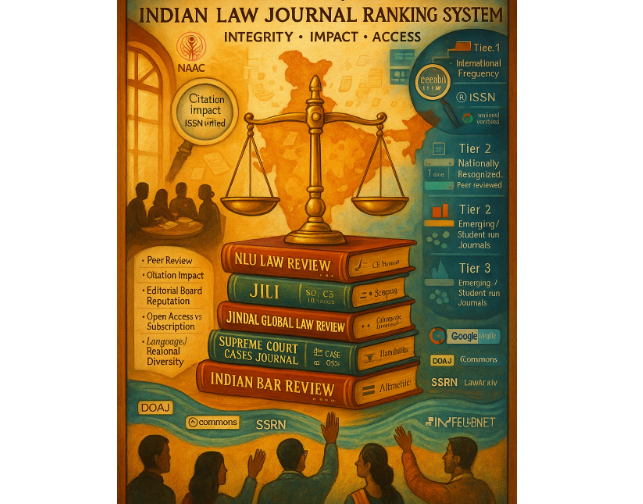
In a recent article by Rahul Hemrajani, Riddhi Alok Puranik, Shristy Chhaparia, and Tvisha Vasudevan, the authors introduce the Indian Law Journals Ranking System (ILJRS) — a transparent, data-driven framework for evaluating Indian legal journals. Rather than emphasizing fixed rankings, the ILJRS prioritizes openness and replicability, enabling scholars and institutions to engage with the raw data, adjust parameters, and apply their own judgments about journal quality.
The first edition focuses on generalist law journals primarily affiliated with Indian law schools, with plans to include specialist and legacy publications in future iterations. Notable exclusions in this round include journals such as Socio-Legal Review, Indian Journal of Arbitration Law, and journal sections of Supreme Court Cases (SCC) and All India Reporter (AIR). The authors actively encourage editorial teams to submit their journals for inclusion and welcome volunteers to contribute to the ongoing development of the ranking system.
Beyond the rankings themselves, the article sheds light on key trends in Indian legal academia. The analysis reveals limited engagement with domestic legal scholarship, a low rate of citation by Indian courts, and a publication landscape largely dominated by undergraduate students, with minimal involvement from legal practitioners, judges, or independent researchers.
This initiative aims to not only inform but also improve the visibility, quality, and impact of Indian legal research over time.
Read the full article: A Ranking System for Indian Legal Journals
